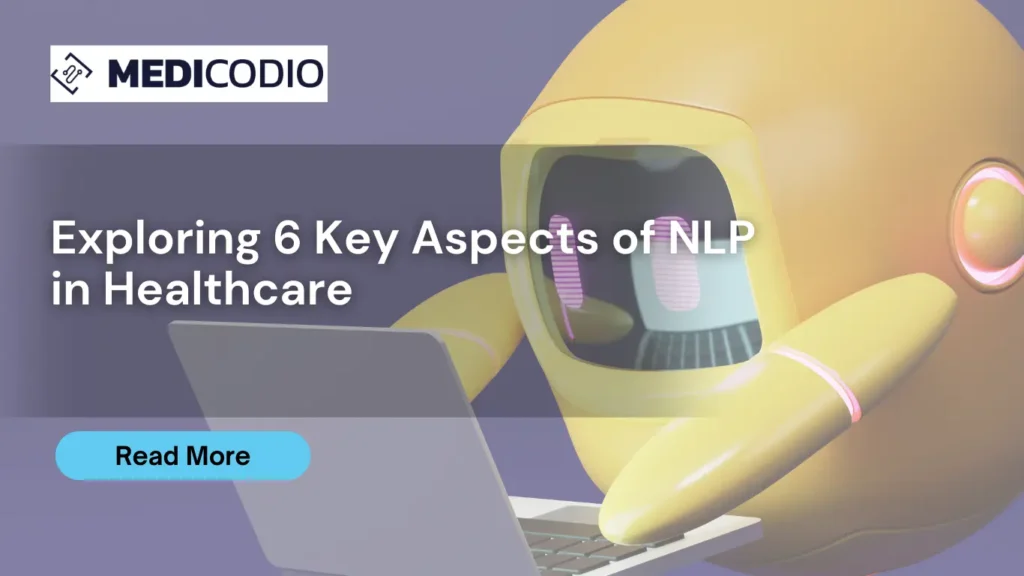Natural Language Processing (NLP) has emerged as a transformative technology in the healthcare industry, offering unprecedented opportunities to enhance patient care, streamline operations, and improve outcomes. By leveraging the power of NLP, healthcare providers can unlock valuable insights from unstructured clinical data, revolutionizing the way they deliver care and manage their operations. In this article, we delve into six key aspects of NLP in healthcare, highlighting its potential impact and key considerations for implementation.
Enhancing Clinical Documentation: NLP enables healthcare providers to convert unstructured clinical notes into structured data, facilitating better documentation and more efficient information retrieval. By automatically extracting relevant information from clinical narratives, NLP can significantly reduce the time and effort required for documentation, allowing clinicians to focus more on patient care. This not only improves the accuracy and completeness of medical records but also enhances the overall efficiency of healthcare operations.
For instance, platforms like emtelligent leverage natural language processing (NLP) to enhance the efficiency of healthcare providers, particularly doctors, by facilitating easier interaction with medical records.
Traditionally, doctors had to spend a significant amount of time sifting through patient records to find key observations, diagnoses, or treatment plans. This manual process could be time-consuming and detract from the time available for direct patient care. The emtelliPro engine structures healthcare data by identifying relevant concepts, coding them to ontologies, making assertions, and relating them accurately.
Improving Clinical Decision-Making: NLP-powered tools can analyze vast amounts of clinical data, including electronic health records (EHRs), medical literature, and patient histories, to provide valuable insights that support clinical decision-making. By analyzing text data, NLP can help identify patterns, trends, and correlations that may not be immediately apparent, enabling clinicians to make more informed decisions about patient care. This can lead to improved diagnoses, personalized treatment plans, and better outcomes for patients.
Automation of Coding Processes: One of the most significant applications of NLP in healthcare RCM is automating coding processes. Coding automation involves the use of NLP algorithms to analyze clinical documentation and extract relevant codes for billing purposes. This automation reduces the burden on human coders, improves coding accuracy, and accelerates the revenue cycle.
MEDICODIO is a promising medical coding automation solution provider dedicated to simplifying medical coding workflows. The company offers an AI-powered medical coding assistant, CODIO, to healthcare organizations, ambulatory centers, and RCM companies. Powered by NLP and machine learning, CODIO suggests medical codes automatically by reading patient information from EHR systems, physician notes, and charts.
Facilitating Population Health Management: NLP can play a crucial role in population health management by analyzing large datasets to identify at-risk populations, monitor disease trends, and assess the effectiveness of interventions. By extracting valuable information from clinical records, NLP can help healthcare organizations identify gaps in care, target interventions more effectively, and improve the overall health of their patient populations. This can lead to better health outcomes and reduced healthcare costs in the long run.
Supporting Clinical Research: NLP can accelerate the pace of clinical research by enabling researchers to analyze vast amounts of text data from medical literature, clinical trials, and patient records. By extracting relevant information from these sources, NLP can help researchers identify potential study participants, extract key insights, and generate hypotheses for further investigation. This can lead to faster discovery of new treatments and interventions, ultimately benefiting patients and advancing medical science.
Enhancing Patient Care:
A recent study conducted in the US revealed that, on average, physicians spend 16 minutes using Electronic Health Records (EHRs) for each patient they see. This not only consumes valuable time that could be spent on patient care but also contributes significantly to burnout and dissatisfaction among medical practitioners.
Advancements in Natural Language Processing (NLP) have enabled computers to understand speech more clearly and accurately, a development that healthcare organizations are capitalizing on. Medical professionals are increasingly utilizing speech recognition systems equipped with NLP algorithms to verbally dictate patient notes. This not only enhances the quality of patient records but also alleviates the administrative burden on physicians, reducing the risk of burnout and enabling them to utilize their time more efficiently.
One notable example is Nuance’s Dragon Medical One, an AI platform that transcribes doctors’ notes in real time directly to the patient’s EHR. This system was successfully implemented at Concord Hospital in New Hampshire, reducing physicians’ workload and saving over $1 million.
In conclusion, NLP has the potential to revolutionize healthcare by enabling providers to unlock valuable insights from unstructured data, improve clinical decision-making, and enhance patient care. By leveraging the power of NLP, healthcare organizations can drive innovation, improve outcomes, and deliver more efficient and personalized care to patients.
Are you ready to implement NLP-based tools in your healthcare facility? If you want to know more about how you can leverage NLP in healthcare, please schedule a demo with us.





